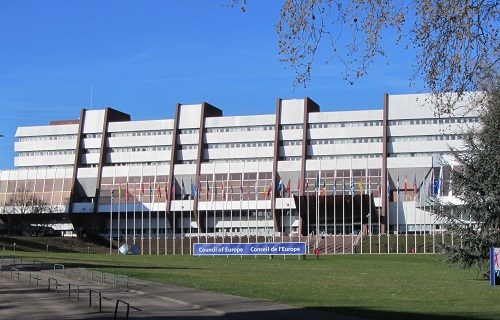Good governance and respect for human rights are “top priority”, asserts FIFA President
On January 10, FIFA President Gianni Infantino and Council of Europe Secretary General Thorbjørn Jagland met in Strasbourg to discuss how to better promote human rights in sport. The meeting followed an exchange of views between the FIFA President and the Council of Europe’s Committee of Ministers, wrote FIFA in a press statement after the meeting.
Infantino and Jagland discussed a number of issues, including human rights in sports, good governance, match-fixing, anti-doping and anti-violence. These issues are among those set to be included in a Memorandum of Understanding, which FIFA anticipate will be ready for signature by the end of 2018.
“It seems clear to me that FIFA and the Council of Europe share many common goals. Good governance, respect for human rights and a resolute stance against doping, match-fixing and violence are a top priority for world football’s governing body,” noted Infantino following yesterday’s meeting.
Jagland stressed that closer cooperation between FIFA and the Council of Europe will uphold respect for human rights in sport.
“Our sports conventions reach beyond Europe and many other countries have expressed interest in joining them. Closer co-operation with FIFA will help to promote respect for human rights in sport both in Europe and worldwide,” Jagland said.
“I am also pleased that FIFA wants to work with us on subject of governance. The role of sport in our societies, for example in boosting integration, cannot be underestimated. Good governance will help to ensure the benefits of sport can be enjoyed by everyone,” Jagland added.
The governing body has been extensively criticised for failing to act on human rights abuses at 2018 and 2022 World Cup construction sites for venues due to be used in Russia and Qatar. This has led labour unions and the sporting goods industry to put pressure on FIFA and demand a reform of football’s governing body.
A much needed meeting for FIFA
The meeting in Strasbourg marks the latest move by world football’s governing body to restore its reputation.
This week, whistleblowers with inside knowledge indicated that FIFA paid each of the elected representatives on its 37-member council $250,000 salaries, plus thousands of dollars more in travel expenses, in 2017.
That level of compensation far exceeds payments for similar work at some of the world’s largest for-profit companies. It also appears to contradict the pledges by Infantino, since his election in 2016, to restore the organization’s credibility, writes the New York Times.
In fact, FIFA has had severe issues with governance after a number of corruption scandals, has led to the indictment of numerous high-ranking FIFA officials.
Last year, a survey by Transparency International and Forza Football revealed more than 50 percent of football fans said that they had no confidence in FIFA. At the time of the survey, only a third of the fans believed that FIFA was actively working against corruption in football.






